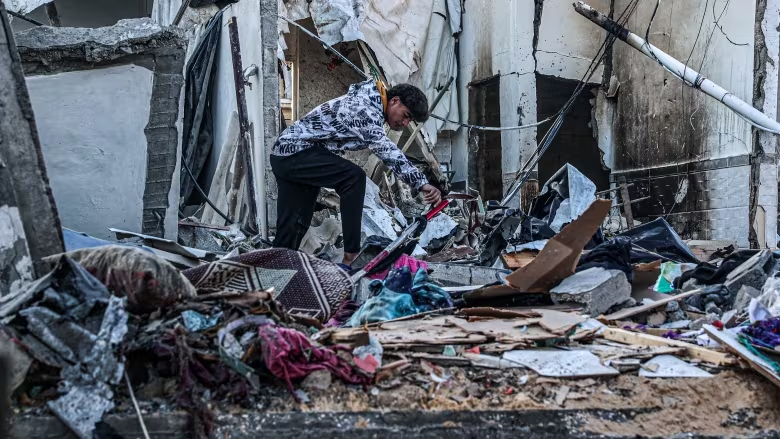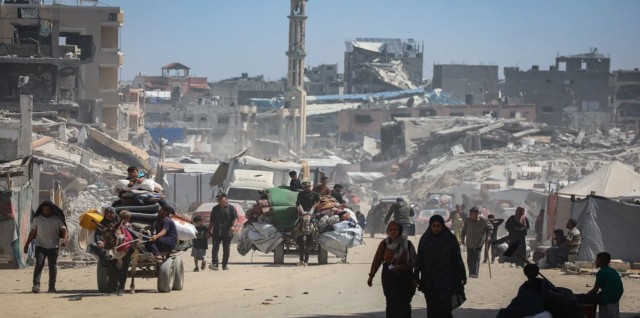
In the wake of Israeli bombardment in Rafah, Gaza Strip, a young individual surveys the debris. (Photo: Said Khatib/AFP/Getty Images)
Israeli Prime Minister Benjamin Netanyahu stood firm on Wednesday, rejecting Hamas's proposed terms for a ceasefire and the release of hostages, dismissing them as "delusional." His steadfast stance adds complexity to ongoing efforts aimed at brokering a resolution between the conflicting parties.
Netanyahu, resolute in his resolve, pledged to continue Israel's relentless four-month-long campaign in the Gaza Strip against the militant organization Hamas until achieving what he termed "absolute victory." His declaration came hot on the heels of a meeting with U.S. Secretary of State Antony Blinken, who has been traversing the region in pursuit of a ceasefire accord.
In a nationally televised address following the meeting, Netanyahu vehemently rebuffed what he deemed as unrealistic demands from Hamas. He warned that acquiescing to these demands would not only fail to secure the release of captives but also pave the way for further bloodshed, hinting at the grim spectre of impending conflict.
"We are on the path to undeniable victory," Netanyahu asserted, emphasizing the enduring nature of the operation, which he indicated would span months rather than years. He unequivocally dismissed any prospect of an agreement that would leave Hamas with either partial or full control over Gaza, asserting Israel's role as the sole guarantor of long-term security in the region.
Despite Netanyahu's unyielding stance, Blinken remained cautiously optimistic about the prospects of reaching a ceasefire agreement. Acknowledging the wide gulf separating the two sides, Blinken emphasized the intricate nature of the negotiations, cautioning against expecting immediate results.
Hamas, in response to proposals put forth by the United States, Israel, Qatar, and Egypt, outlined a meticulously structured plan spanning three phases over four and a half months. Central to their proposal is the release of all hostages in exchange for the liberation of hundreds of Palestinians held in Israeli prisons, alongside a cessation of hostilities.
However, Israel remains steadfast in its objective of dismantling Hamas's governing and military infrastructure, viewing the group's proposal as a potential perpetuation of its grip on power in Gaza and the resurgence of its military capabilities.
As diplomatic efforts continue amidst the backdrop of widespread devastation in Gaza, with entire neighbourhoods reduced to rubble and the majority of the population displaced, the stakes have never been higher. With regional tensions simmering and the risk of a broader conflict looming, the fate of Gaza hangs precariously in the balance.















